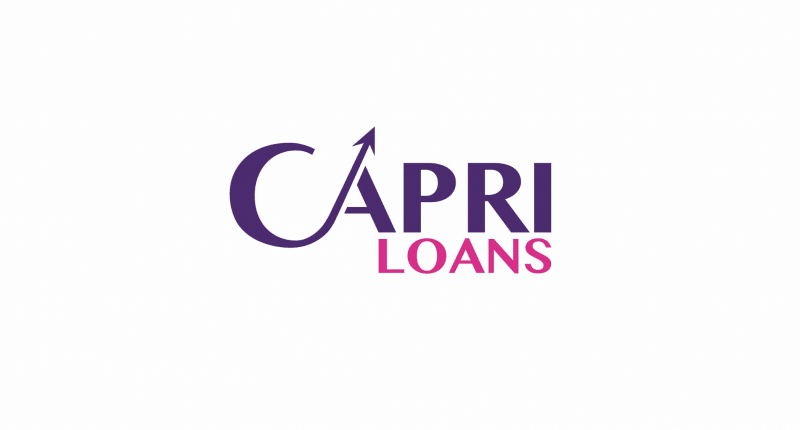Finance, along with Health and Education, has been a sector that saw an extremely dynamically changing landscape during the COVID-19 pandemic. The sector, which had been witnessing a steady rise of fintech companies, suddenly saw a surge of such startups looking to capture the digital finance space. Traditional financial institutions, despite their dominance in the sector, haven’t really kept up with the nimble and fast footed fintech startups.
Discussing the same and the overall fintech landscape in general, our team had an exclusive conversation with Rahul Agarwal, Group CTO at Capri Loans. Here are a few excerpts from the interview:
What is your overall outlook on the state of India’s as well as Global fintech industry?
The Indian fintech industry is growing rapidly and has the highest fintech adoption globally. India has managed to build an extensive network of FinTech segments such as digital banking, PayTech, InsurTech, RegulationTech, among others. Owing to the pandemic, real-time payments, quick loan disbursals, peer-to-peer lending, transparent insurance advisory, etc. have become a part of the fintech ecosystem. Along with the tech developments in India, government initiatives have been a catalyst in uplifting and accelerating the growth of fintech startups in the country.
India’s robust digital infrastructure is rapidly developing and proliferating, this combined with the brilliant talent emerging from our country, will be a big boost for the national fintech industry. Talking about the global fintech industry, with the advent of crypto, blockchain among other rapid advancements has led to increased ease of access to global capital and services. These advancements are working towards creating an open and easily accessible global network of capital and financial services.
A common pattern seen in major, developed economies, is the large share of MSMEs in the overall GDP. In India, that share is still significantly low. How do you see MSMEs utilising the power of fintech, to contribute more towards India’s $5Tn economy goal?
The potential of the Indian MSMEs is immense but they face certain challenges. These are access to technology, funds and a talented workforce. What fintech will help solve starts with the problem of access to capital by providing affordable and easy access to credit which is the primary roadblock for many. Providing alternative sources of capital, fintech is slowly replacing the need for MSMEs to go to informal credit sources which charge abysmal rates with no supporting services.
The growth journey of the MSMEs is stimulated through access to affordable and trustworthy credit, accompanied by FinTech services (tax filing, credit rating, risk assessment and management etc). This growth contributes to the adoption and implementation of technology, which helps streamline businesses thereby attracting quality talent to the enterprises. It is a cyclical and holistic approach where we are trying to solve the challenges that will allow these businesses to reach the next level.
The fintech space is largely dominated by new-age tech startups. How do you see traditional financing institutions, such as banks/NBFCs among others, fitting into the same? What are some of the innovations that these traditional institutions will have to do, in order to not lose out on the fintech boom?
The way forward for many traditional NBFCs can be split into 2- those which will acquire/collaborate with the new age FinTech startups and the other will be those which quickly pivot and adapt to the changing times by implementing cutting edge technology and services.
In order to ride the wave of FinTech, financial institutions must be ready to constantly evolve due to the high rate of innovation and competition prevailing in the industry. Remaining adaptive to the prevailing scenarios will also permit these institutions to increase their operational efficiency, develop and offer new methods of lending and investing, reach larger markets and increase profits, to list a few advantages.
There are many innovations and advancements in technology that are extremely useful for NBFCs to remain competitive. Some of these are the application of Artificial Intelligence and Machine Learning technologies for increased automation, utilising cloud computing, its accompanying services and microservices, exercising the latest developments in data analytics and data science etc.
In the above context, how is Capri Global adapting to these changing times and becoming a new age fintech company?
It is a simple ideology, we maintain a tech-first thinking for our products, services, procedures etc and constantly bolster our in-house capabilities. This allows us to implement the latest technology, automate our processes and remain competitive with the industry.
Currently, we are focused on building and improving our in-house systems and strengthening our brilliant tech team. Keeping our systems and tech in-house permits us to be completely self-reliant and facilitates scalability on our own terms.
Leveraging our data analytics and sciences, we are consistently working on offering the smartest, most useful and hyper-personalised tools and products for our users. Aside from these digital initiatives, we have more than 70% of our applications operating on the cloud and are rapidly growing towards 100%
Can you dive deeper into some of the new digital initiatives at Capri – such as ease of banking to customers, building transparency and going paperless etc.?
We know that the future is paperless and we have implemented this ideology to the maximum possible extent while being in line with the RBI guidelines.
We have built a unique document processing engine that performs the necessary image processing and also scores the quality of bank statements, salary slips and other documents.
Launching soon, our Gold Loan platform leverages real-time integrations and data analytics, which will ensure that a customer’s gold loan will be in their account within 30 mins.
The One Stop Shop application for our consumers will provide our users with 100% transparency over their Loan Account, Payments, new loan enquiries, connections, and so on.
It has been established for a while now that ‘Data is the new oil’. According to you, what is the role of data analytics in the fintech transformation process and how critical is that?
Consumer data is a huge asset for financial institutions. Using top of the line analytics, this data reveals trends, patterns and user preferences which allows us as institutions to tweak our products and services to offer the best to our consumers.
Data analytics is extremely critical for institutions like ours. It focuses on reducing cost while offering secure and reliable results thereby lowering the risk while increasing efficiency in operations. It also supports the integrity and security of our systems by actively detecting and acting on unusual transactions and fraudulent patterns
Data analytics are extremely helpful in identifying new demographics, formulating consumer profiles and developing a strategic plan for addressing these. Data analytics also paves the way for improved risk assessment by relying on various data sources.
At Capri Global, how are you leveraging disruptive tech and smart analytics to meet some of customers’ unique requirements?
Keeping our goal of catering to lower-income and economically disadvantaged strata of society in mind, we leverage smart technology to increase our accessibility and reach. Using disruptive tech and analytics, we maintain a holistic view of the needs and wants of the market and how to match those.
Data is highly essential, as we discussed above; we ensure that we provide precise solutions to our consumers by utilising and implementing data analytics in our production and deliverance strategy. For example, we can analyse the credit data of a customer and undertake risk analysis/scoring by inspecting outstanding debts, if any, and checking whether the customer is making timely instalment payments. Looking at such data, we are able to review potential red flags, etc.
What this enables us to do is to obtain the finest pricing for our customers. Gauging credit history, we can provide better options in advance. The end result is making the consumer feel valued and cherished, which allows for higher levels of satisfaction. Market and consumer expectations constantly change with time, as they always have, it is up to us as companies to adopt and leverage technological agility to keep up.
The Tech Portal is published by Blue Box Media Private Limited. Our investors have no influence over our reporting. Read our full Ownership and Funding Disclosure →






